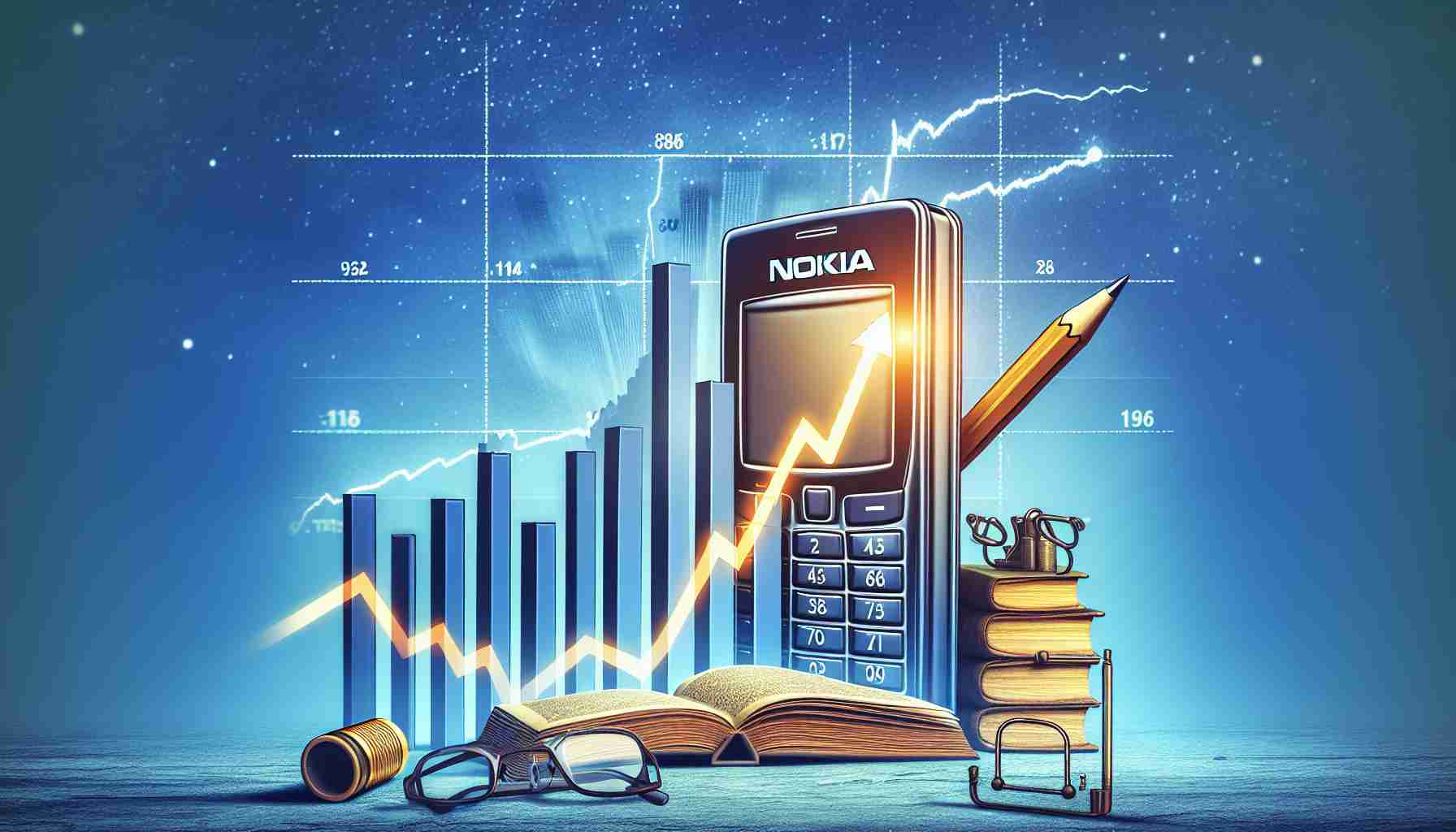Nokia’s Strategic Move to Boost Shareholder Value
Nokia has launched an ambitious stock buyback program as part of its strategy to enhance shareholder value. This initiative, authorized during the Annual General Meeting held on April 3, 2024, started on November 25, 2024, and is scheduled to conclude by December 31, 2025. The tech giant intends to repurchase 150 million shares, with an investment cap of €900 million.
Following a recent buyback transaction amounting to €3,819,244, Nokia has significantly increased its ownership of its own shares, now totaling 228,219,080. Detailed information regarding these transactions is accessible in the company’s official announcements.
Nokia stands as a pivotal player in the B2B technology landscape, driving advancements in intelligent networking and strategic innovation. With a strong foundation in fixed, mobile, and cloud infrastructures, the company excels in developing cutting-edge solutions that promise to redefine the digital landscape. Their esteemed Nokia Bell Labs spearheads long-term research and development efforts and continues to safeguard valuable intellectual property.
As a trusted partner globally, service providers and enterprises count on Nokia for robust network performance, high security standards, and responsible practices. By collaborating with various stakeholders, Nokia is poised to create new opportunities for digital services and applications, reinforcing its position at the forefront of technological advancement.
Nokia’s Strategic Move to Boost Shareholder Value: Implications for Future Sustainability
Nokia’s recent implementation of a stock buyback program, aiming to repurchase 150 million shares with an investment cap of €900 million, highlights a strategic focus on enhancing shareholder value. However, this initiative brings forth a broader discussion concerning its environmental, economic, and societal impacts—and ultimately, how it aligns with the future trajectory of humanity.
At the core of Nokia’s strategy lies its commitment to technological innovation, particularly in sectors such as intelligent networking and cloud infrastructures. As the company continues to evolve, the choices it makes in development and investment practices will crucially affect not only its shareholders but also the world at large. For instance, by investing in sustainable technology and promoting energy-efficient solutions within its networks, Nokia can lead a paradigm shift in the tech industry that prioritizes environmental stewardship.
The implications of such a shift are profound. If Nokia, as a major player in B2B technology, enhances its focus on sustainability, it can influence other firms in the sector to follow suit, collectively reducing the technological industry’s carbon footprint and promoting greener practices. This could instigate a positive feedback loop, leading to widespread adoption of eco-friendly technologies across various sectors, significantly contributing to global efforts in combating climate change.
Moreover, Nokia’s dedication to high security standards and responsible practices means that as it develops its digital services and applications, it can ensure these solutions incorporate considerations for cybersecurity and ethical technology use. This is paramount as we step into an era where data privacy and internet security are increasingly central to human rights discussions and policy-making decisions.
Beyond environmental impacts, Nokia’s actions have implications for the economy. By reinforcing its market position and profitability through stock buybacks, Nokia might seem to favor short-term financial gains; however, the long-term business sustainability will depend on continuous investments in research and development. The innovative progress powered by Nokia’s esteemed Bell Labs can drive economic growth by developing solutions that create jobs, enhance productivity, and support the digital economy.
In a world increasingly dependent on digital infrastructure, the decisions made by companies like Nokia will inevitably shape the future of humanity. Emphasizing ethical practices, sustainability, and technological advancement can create a more balanced ecosystem where economic growth and environmental health coexist harmoniously.
Ultimately, as Nokia engages in strategic financial maneuvers to please its shareholders, it holds a responsibility—one that transcends profits—to ensure that its innovations yield positive outcomes for humanity and the planet. By connecting technological advancement with sustainability, Nokia can not only enhance its market position but also play an instrumental role in fostering a resilient future for all.
Nokia’s Game-Changing Share Buyback Initiative: What Investors Need to Know
Overview of Nokia’s Stock Buyback Program
In a strategic move designed to enhance shareholder value, Nokia has initiated a significant stock buyback program. This ambitious initiative was approved during the Annual General Meeting on April 3, 2024, and officially commenced on November 25, 2024. The buyback program is set to run through December 31, 2025, with a goal of repurchasing 150 million shares at a total investment cap of €900 million. Following a recent transaction of €3,819,244, Nokia has significantly bolstered its share ownership, enhancing investor confidence and commitment.
Key Features of the Buyback Program
– Total Shares for Repurchase: 150 million
– Investment Cap: €900 million
– Start Date: November 25, 2024
– End Date: December 31, 2025
– Current Shares Repurchased: 228,219,080
This comprehensive repurchase plan signals Nokia’s intent to optimize capital structure and return excess cash to shareholders, reflecting a commitment to long-term value creation.
Market Insights and Trends
As a cornerstone of the B2B technology landscape, Nokia’s efforts in stock buybacks align with broader market trends where companies prioritize shareholder returns amidst economic uncertainty. Analysts indicate a growing trend among tech firms to leverage surplus cash for buybacks as a means of stabilizing share prices and enhancing investor sentiment.
Pros and Cons of Nokia’s Buyback Strategy
# Pros:
– Increased Shareholder Value: Buybacks typically lead to an increase in earnings per share (EPS), benefiting existing shareholders.
– Positive Market Signal: Such actions often indicate management’s confidence in the company’s future prospects.
– Flexible Capital Management: Allows Nokia to manage its capital allocation efficiently.
# Cons:
– Use of Capital: Funds used for buybacks could alternatively be invested in innovation or acquisitions.
– Short-term Focus: Critics argue buybacks can prioritize short-term gain over long-term business growth.
Future Predictions
Investors are keenly watching how this buyback strategy will unfold over the next year. Analysts predict that if Nokia’s stock prices rise as a result of reduced share supply, it may encourage further investments or additional buyback phases in the future.
Security Aspects and Sustainability
Nokia emphasizes robust security standards across its offerings, ensuring that investments in network performance also translate into safe digital operations for its partners. The company incorporates sustainability into its business model, focusing on responsible practices and reducing environmental impact, thereby enhancing its overall brand reputation.
Conclusion: Nokia’s Commitment to Growth
Nokia’s stock buyback initiative is a robust demonstration of the company’s commitment to shareholder value while simultaneously pushing the boundaries of technological innovation. By investing in both its own shares and advanced technological solutions, Nokia is positioning itself as a leader not only in market performance but also in the foundational advancements necessary for the future of global connectivity.
For more information on Nokia’s initiatives and advancements, visit Nokia.






















